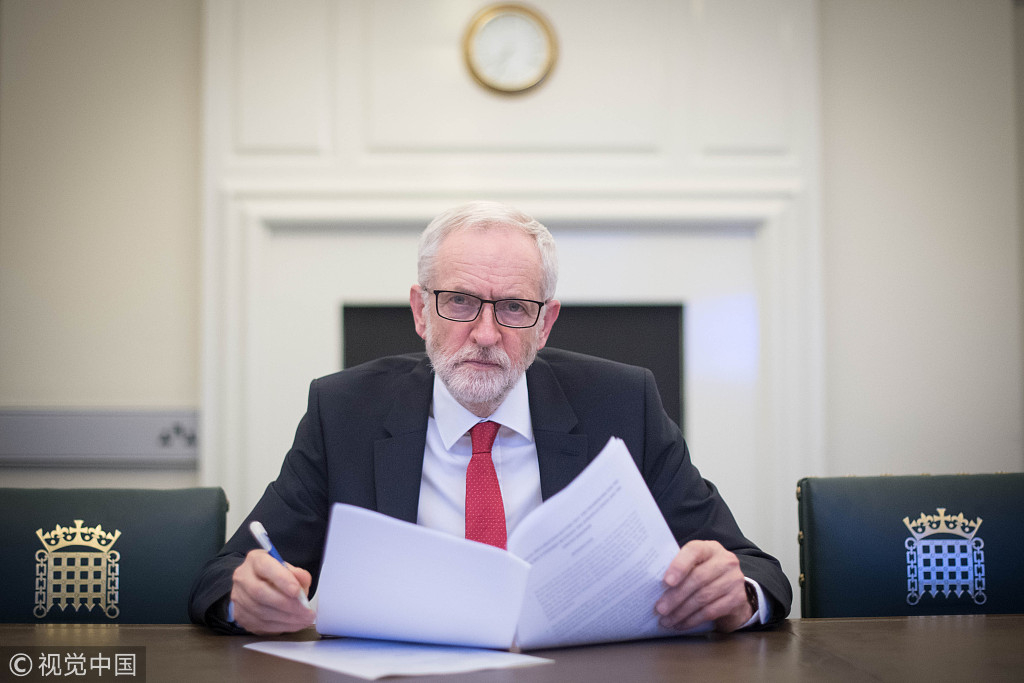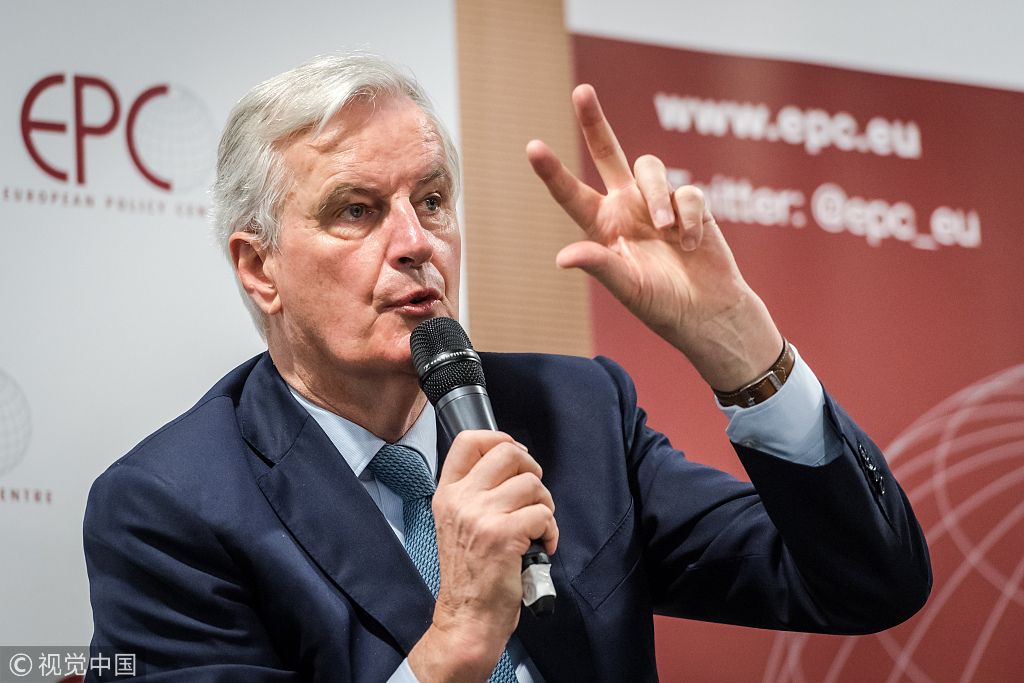UK Prime Minister Theresa May said on Tuesday she would ask the European Union for a further delay to Brexit beyond April 12 to give her time to sit down with the opposition Labour Party in a bid to break the impasse over Britain's departure.

Britain's main opposition Labour Party leader Jeremy Corbyn poses with a copy of the Political Declaration setting out the framework for the future UK-EU relationship, in his office in the Houses of Parliament in London, UK, April 2, 2019. (Photo: VCG)
Nearly three years since the United Kingdom voted to leave the EU in a shock referendum result, British politics is in crisis and it is unclear how, when or if it will ever quit the European bloc it first joined in 1973.
In a hastily arranged statement from her Downing Street office after spending more than seven hours chairing crisis cabinet meetings on how to plot a way out of the Brexit maze, May said she was seeking another short extension to Brexit.
"We will need a further extension of Article 50, one that is as short as possible and which ends when we pass a deal," May said. "We need to be clear what such an extension is for – to ensure we leave in a timely and orderly way."
"I am offering to sit down with the leader of the opposition and to try to agree a plan – that we would both stick to – to ensure that we leave the European Union and that we do so with a deal,” May said.
The move by May offers the prospect of keeping the United Kingdom much more closely tied to the EU after Brexit, as the Labour Party has called for a continued customs union with the EU and a close relationship with the EU's single market.
Any plan, May said, would have to include the current Withdrawal Agreement that she agreed with the EU in November and which the bloc says it will not reopen, rejecting the demands of euroskeptic hardliners in her Conservative Party who seek a clean break from the EU.
Softer Brexit?
May said that if she could not agree a unified approach with Labour leader Jeremy Corbyn, then the government would agree a number of options on the future relationship.
Then, she said, the government would put them before the House of Commons in a series of votes.
"Crucially, the government stands ready to abide by the decision of the house."
It was unclear what the impact of May's move would be on her own febrile party, which has been grappling with an internal schism over Europe for the past three decades.
Over half of her lawmakers voted last week to go for a no-deal Brexit, to the dismay of British business.

The EU's chief negotiator Michel Barnier warns it is "day after day more likely" that Britain will crash out of the bloc next week without an orderly withdrawal agreement during a briefing in Brussels, Belgium, April 2, 2019. (Photo: VCG)
"It seems to me that she wants to rely upon Labour votes to get this extension through," David Jones, a Brexit-supporting former Conservative minister, told Reuters. "If she does that, then she is putting the future of the party in peril."
May said she wanted the Withdrawal Agreement Bill to be passed before May 22 so that the United Kingdom did not have to take part in elections that month to the European Parliament.
May's own divorce deal with the EU has been defeated three times by the lower house of the British Parliament, which failed on Monday to find a majority of its own for any alternatives.
The impasse has already delayed Brexit for at least two weeks beyond the planned departure date of March 29 to 2200 GMT on April 12.


